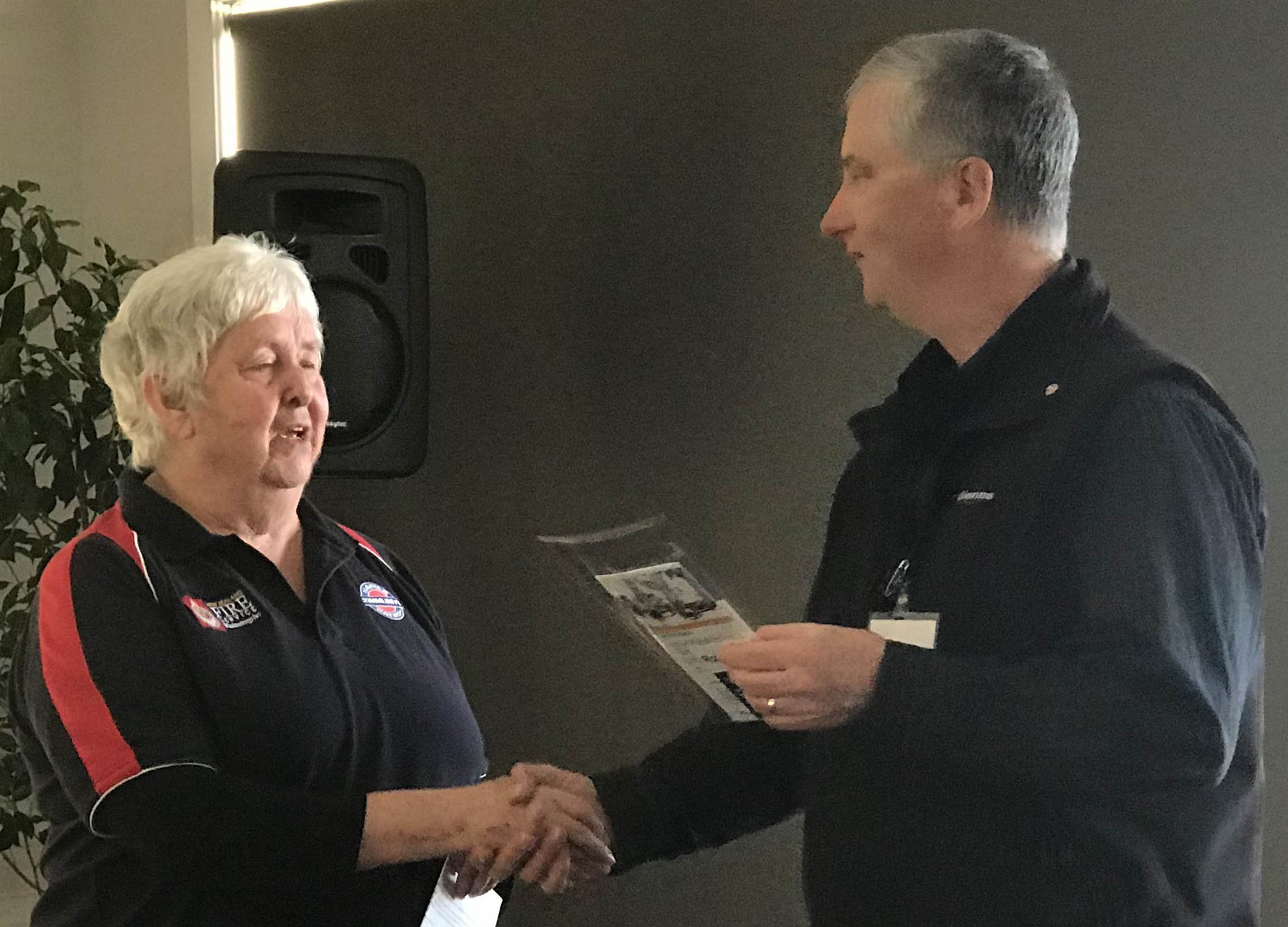Richard Wimsett introduced our guest speaker, Aynsley Richards who was accompanied by her husband Graeme. They are both volunteers with Fire and Emergency NZ and gave a very interesting and informative account of their work there. The initiative was started by Paul Hughes,Fire Chief at Taradale, who was concerned by the growing numbers of house fires and fatalities. He brought together a small group of handpicked volunteers to concentrate on getting across to the public the importance of smoke alarms and fire survival plans. We have probably grown complacent over the years - we have smoke alarms but are they in the right place? And are they even working? Aynsley pointed out that in 1960, it took 15 minutes for fire to gut the average house. Today, due to modern furnishings and furniture, that time has been reduced to a mere 3 minutes so preparation is even more vital. Some 85% of properties where house fires are attended by the Fire Service do not have working alarms. Aynsley’s role is to get the message across, speaking to all interested groups throughout the area. The important points are simple and obvious - pay attention and be prepared! Switch off all appliances at night, especially phone chargers, stoves ,and electric blankets. Help yourself to stay safer. Keep radiant fires at least a metre clear from any fabrics and keep hot ashes in a metal container in a safe area. Have an escape plan and make sure the whole family knows about it. Keep the escape route clear - you could be in a situation of choking black smoke and zero visibility. And have a Plan B in case that route is not usable. Call the Fire Service, get out and stay out. And of course make sure your smoke alarms are working, in the correct positions and loud enough to waken you. Some sectors are more vulnerable- the deaf, stroke victims, MS sufferers for example- so even greater vigilance is required. The volunteers will visit your home, check any current system and replace alarms as necessary. They use alarms with a 10 year life so there are no problems with remembering to replace batteries. All this is done free of charge though of course donations are welcome. The team started inTaradale and has now extended to cover Napier and Westshore, installing around 800 alarms a year. The scheme has been so successful that it is forming the basis of a National Plan which will soon be rolled out. Despite their valuable work which has safeguarded lives and property, the group receives no Government funding and relies on donations and gifts from clubs and organisations.  In conclusion Aynsley invited any members who would like a home check to add their names to her list. Glenn thanked Aynsley and Graeme on behalf of the Club for an excellent and informative talk and presented them with the Rotary Pathway coin. | .jpg)

.jpg)
